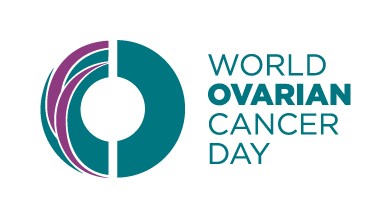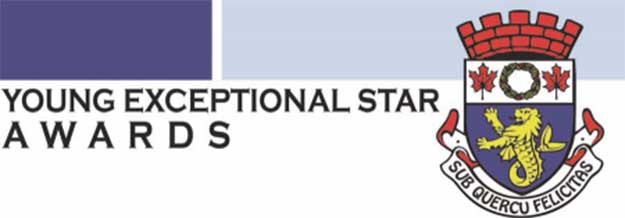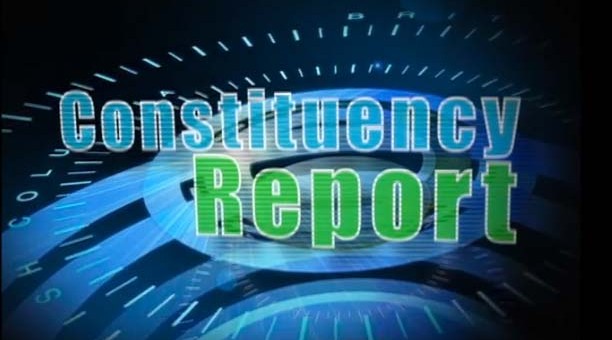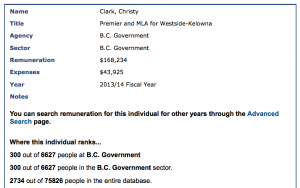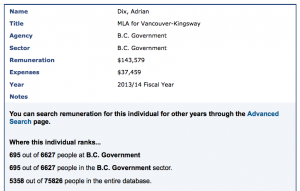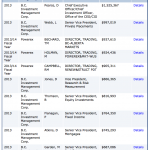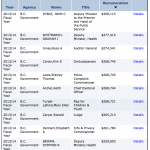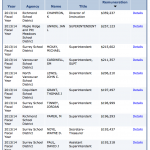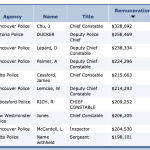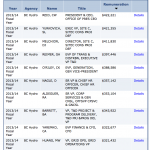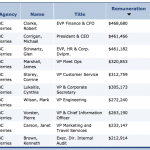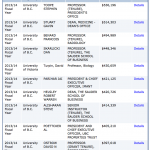Issues & Community Blog - Andrew Weaver: A Climate for Hope - Page 118
Recognizing the Work of Ovarian Cancer Canada
Yesterday was World Ovarian Cancer Day and so I took the opportunity today in the legislature to publicly recognize the work being done by Ovarian Cancer Canada.
Below are the text and video of my statement.
Text of my Statement
Yesterday, May 8, was World Ovarian Cancer Day, and organizations around the globe shared what we need to “Know Now” about this disease. Ovarian Cancer Canada is the only national charity dedicated to overcoming this disease. Their members were meeting with elected representatives across the country in the lead-up to yesterday’s event. I was privileged to meet with Tracy Kolwich, director, Western region, for Ovarian Cancer Canada, and two local ambassadors for the organization, Katherine Farris and Kit Pearson.
Katherine, an ovarian cancer survivor, and Kit are volunteer advocates who, together with Ovarian Cancer Canada, are working tirelessly to raise public awareness of the need for:
(1) increasing funding for research;
(2) ready access to new treatments as they become available;
(3) improved access to genetic testing; and
(4) genetic fairness to protect against discrimination based on genetic information.
In Canada today, approximately 17,000 women are living with ovarian cancer. It is the fifth most common cancer for women and is the most fatal women’s cancer in Canada. Each year approximately 2,600 women are newly diagnosed, and every year ovarian cancer claims the lives of 1,750 Canadians.
Ovarian cancer is difficult to detect and can easily be overlooked because its symptoms can signal a variety of conditions, including abdominal discomfort. Because this disease is often caught in late stages, 70 percent of women diagnosed die within five years of diagnosis. There’s no reliable screening for ovarian cancer, and there is no vaccine to prevent it.
Ovarian Cancer Canada undertakes a number of important initiatives, including providing support for women and families living with the disease; raising awareness and implementing education programs about ovarian cancer; providing and advocating for research funding, including through a new partnership with the Terry Fox Research Institute.
Please let me acknowledge the important work being conducted by Ovarian Cancer Canada. Please let me also applaud the ongoing efforts of two of my constituents — Katherine Farris and Kit Pearson, who continue to work tirelessly as ovarian cancer advocates.
Video of my Statement
Congratulation to all Oak Bay Young Exceptional Star (Y.E.S.) Award Winners
 Today I had the privilege of attending the 9th annual Oak Bay Young Exceptional Star (Y.E.S) awards ceremony at the Oak Bay Recreation Centre where 12 exceptionally talented youth in grades 6 to 10 were honoured for their achievements.
Today I had the privilege of attending the 9th annual Oak Bay Young Exceptional Star (Y.E.S) awards ceremony at the Oak Bay Recreation Centre where 12 exceptionally talented youth in grades 6 to 10 were honoured for their achievements.
As noted by the YES Awards Committee, Chaired by Hazel Braithwaite, that administers the awards, “The goal of the awards is to emphasize the positive achievements of Oak Bay’s young people by recognizing those who have distinguished themselves in such areas as volunteerism, arts, citizenship, academics, athletics and/or who have overcome obstacles to achieve their goals.”
Congratulations to this year’s award winners: Cara Butler, Vanilia Chotou, Kaden Cortini, Annabelle Fieltsch, Rose Hanneson-Schwenger, Rebecca Hartley, Sidney Hurst, Jasmine Lambert, Aiden Leibel, Nicole Quast, Elmer Thomas and Jack Walmsley.
I had the pleasure of presenting the award to Cara Butler. Below is the text of my speech.
Text of Speech
In the words of her nominator, Nichelle Soetaert, Cara Butler is an outstanding young woman – driven, kind, diligent, reliable, creative and dedicated to all of her endeavours. She inspires her peers to become more engaged in the community and consistently emerges as a leader both inside and outside of the classroom. Her teachers consider it a genuine pleasure to have her in class, her peers seek her out for advice and guidance, and the influence of her generosity and dedication is felt from the Oak Bay Community all the way to Vicente Guerrero, Mexico.
Cara’s academic prowess is extremely impressive and she achieved at or above 93% in each of her 8 classes. She also competes with the senior field hockey team, has achieved a provincial level competing in track and field and is a leader on the junior girls’ Oak Bay soccer team. You would imagine that maintaining grades above 90% would be no easy feat with all of these things on her plate, yet Cara continues to excel academically and in all others areas of her busy life.
As a grade ten student, Cara has become deeply ensconced in the Oak Bay Community. She was involved in two major events that took place through Oak Bay High this year. The first of these events is very close to the heart of the school – Cops for Cancer. Cara worked tirelessly during her summer and throughout the month of September to organize fundraisers and to plan the arrival of the Tour de Rock participants at the school. At every event, she wore a smile and encouraged others to be engaged in the process, leading by example.
Another important achievement for Cara this year is her involvement in the Live Different program. Every second year, a group of 36 Oak Bay students travel to Vicente Guerrero, Mexico to build a home for a deserving family in a very impoverished area. The dedication and commitment required by this program is intensive, including a year and a half of preparation. Cara was committed from the first moment, working hard to raise money for the “Jail or Bail” event, spending countless hours preparing for the dance, and building new connections with all group members. During the trip, she was always actively involved. She helped others understand and cope with intense emotions (while certainly experiencing those same emotions herself), and was able to connect with the larger world at a very deep level.
Cara really embodies all of the attributes of a Young Exceptional Star not only in her school, but in her community too and it gives me great pleasure to present her with an award this year.
Constituency Report – April 2016
Constituency Report is a public service that Shaw TV graciously offers MLAs. This month’s video is provided below.
Judy Fainstein and I once more tried something different. The first segment follows the usual discussion of legislative issues relevant to Oak Bay-Gordon Head and British Columbia in general. In the second segment, I introduce Isobel Mackenzie, British Columbia’s Seniors Advocate. We discuss the role and services offered by the Office of the Seniors Advocate British Columbia.
As always, I’d be interested in your feedback on this constituency report.
Constituency Report
Responding to Auditor General’s Report on Compliance & Enforcement of the Mining Sector
Media Statement, May 3rd, 2016
Andrew Weaver responds to Auditor General’s Report on Compliance & Enforcement of the Mining Sector
For Immediate Release
Victoria B.C. – Andrew Weaver, MLA for Oak Bay – Gordon Head and Leader of the BC Green Party made the following statement in response to the release of the Office of the Auditor General audit report “An Audit of Compliance & Enforcement of the Mining Sector”:
Professional Reliance and Captured Regulator:
“This report provides further evidence that the government has got the balance wrong between protecting the interests of British Columbians and advancing the interests of corporations,” said Weaver. “That the Auditor General would suggest that a Ministry within the government is at risk of regulatory capture is very concerning.”
“It’s hypocritical and frankly paradoxical for the government to dismiss the Auditor General’s concerns that we have become too reliant on experts hired by companies to provide regulatory oversight. On the one hand the government says that qualified professionals have played a role in mining for decades; on the other hand the government also notes that the status quo cannot continue,” said Weaver. “Instead of trying to have it both ways they should be asking the very serious question of whether sufficiently independent reviews, with the resources to the job correctly, are actually taking place. I would suggest they are not.”
Permitting:
The report also noted issues regarding permitting and enforcement under the Ministry of Environment including lack of coordination between environment and mine compliance officials, and ‘enforceable’ language in actual permits.
“This report emphasizes the need for a review of both Ministry of Energy and Mines and Ministry of Environment permitting processes and enforcement measures.” said Weaver “There is a huge gap in public trust between government and permit holders as is highlighted now in the on-going dispute over the Shawnigan Lake contaminated soil dump site. This issue has forced residents and local governments to use the court system to get results from government. It is imperative that the Auditor General’s recommendations are adopted immediately to begin to repair this relationship.”
Media Contact
Mat Wright – Press Secretary Andrew Weaver MLA
1 250 216 3382
mat.wright@leg.bc.ca
On corporate and union donations, and party leader stipends
Introduction
The subject as to whether or not corporate and union donations to political parties should be allowed in British Columbia has been a matter of debate for quite some time. It resurfaced in the headlines over the last few days.
On April 25th the Dogwood Initiative released polling results showing that “86% of British Columbians would support a ban on corporate and union donations before the next election“.
Two days later Gary Mason wrote a story in the Globe and Mail stating:
“The Globe and Mail has learned that Ms. Clark is given between $30,000 and $50,000 a year from the BC Liberal Party for work she does for it throughout the year, including attending fundraising events. “
in the same piece, the Leader of the Official Opposition is quote as saying he’s received reimbursement for a “couple of suits” totaling about $5000 since becoming Leader in 2014.
In a second piece, published later that day after the BC NDP raised the issue in Question period, Gary Mason piled on the evidence as to why he believes party stipends to premiers shouldn’t be allowed. He noted that BC is one of only two provinces in Canada where a provincial premier gets a stipend from the political party (Saskatchewan being the other). And he suggested that since one of the duties of a provincial party leader is to fundraise, a perception could be left that there is a potential conflict.
The Vancouver Sun also picked up the story as did the Tyee a day later. Both these articles included quotes from a letter that MLA David Eby submitted to the conflict or interest commissioner.
Union and Corporate Donations in BC Politics
The BC Green Party, the BC NDP and Independent Member Vicki Huntington (Delta South) have long called for a ban on union and corporations in BC politics. As I’ve noted in numerous speeches in the legislature, unions don’t vote; corporations don’t vote; only people vote. BC is the wild west in terms of its lax rules for political donations. Any person, union or corporation anywhere in the world can donate any amount of money they want to any party any time they want! It leaves one wondering whose interests are being represented.
Let’s take a quick look at some data from the recent financial reporting to Elections BC.
 The BC NDP 2015 Financial Report notes that the BC Government & Service Employees Union donated $92,679.42 to the BC NDP. The United Steelworks Union donated $66,325 to the BC NDP during this period.
The BC NDP 2015 Financial Report notes that the BC Government & Service Employees Union donated $92,679.42 to the BC NDP. The United Steelworks Union donated $66,325 to the BC NDP during this period.
The BC Liberal 2015 Financial Report notes that The Independent Contractors and Businesses Association of BC donated $47,000 to the BC Liberals. KGHM Ajax Mining Inc. donated $29,000, and the New Car Dealers Association of BC also donated $62,225 to the BC Liberals.
The issue of union and corporate donations raises other potentially troubling concerns. A corporation is governed by a board that ultimately serves at the will of the corporation’s shareholders. As such, donations made by corporations are being done so whether or not a shareholder approves of such donations. In essence, shareholders are having their money used to support a political party even if they don’t support that political party. The same is true for union donations. Union members have dues taken from their paycheques to fund the operations of their unions. There may be members of a union who support a party other than the party that the union that represents them is donating to. In both cases, a chosen few individuals are making the decision as to which political party their shareholders/members will support financially.
The Case of Mount Polley
From January 1, 2012 until May 13, 2013 (the date of the last provincial election), the United Steelworkers Union and several of its Locals donated a total of $636,484.34 to the BC NDP. During the same time, Imperial Metals Ltd donated a total of $24,110 to the BC Liberals. Mount Polley Mining Corporation also donated $45,720 to the BC Liberals.
 After the tailings pond breach at the Mount Polley mine site, there were a number of newspaper stories pointing out that Imperial Metals, its controlling shareholder, and Mount Polley were all major donors to the BC Liberal Party (see for example a Vancouver Observer article). Imperial Metals was a very minor donor to the BC NDP as well. But as I indicated above, the BC NDP also received substantial donations from the United Steelworkers Union, the union that represents workers at the Mount Polley mine. In fact, Stephen Hunt, USW District 3 (Western Canada) Director, specifically called for USW members to support the BC NDP in the May 2013 election.
After the tailings pond breach at the Mount Polley mine site, there were a number of newspaper stories pointing out that Imperial Metals, its controlling shareholder, and Mount Polley were all major donors to the BC Liberal Party (see for example a Vancouver Observer article). Imperial Metals was a very minor donor to the BC NDP as well. But as I indicated above, the BC NDP also received substantial donations from the United Steelworkers Union, the union that represents workers at the Mount Polley mine. In fact, Stephen Hunt, USW District 3 (Western Canada) Director, specifically called for USW members to support the BC NDP in the May 2013 election.
The purpose of me highlighting the Mount Polley situation is to detail a very real example of why we need to take big union and big corporate money out of BC politics as we have done federally. Government is elected by the people to serve the people of British Columbia. In the case of the Mount Polley incident, the government and the official opposition had to make some very difficult decisions. What, if any, penalties should be implemented? When should the mine be reopened? How should it be monitored? While I am confident that both the government and the official opposition put the best interests of people first and foremost in this case, there will always be those who will question any resulting decision because of the perception that arises when union and corporate money is donated to political parties.
Public Sector Salaries in BC
The Vancouver Sun regularly publishes public sector salaries so its relatively straightforward to track what public sector employers are earning. Below I reproduce the most recently available entries from the 2013/2014 fiscal year for both the Premier (Christy Clark) as well as the Leader of the Official Opposition at the time (Adrian Dix). As you can see from the link images below, Christy Clark’s salary ranked 300th out of 6,627 people within the B.C. Government category; overall she was the 2734th out of 75,826 listed in the database. Adrian Dix’s salary ranked 695th out of 6,627 people with in the B.C. Government category; overall he was 5,358th out of 75,826 listed in the database.
2013/2014 salary for Premier (left) and leader of the opposition (right).
John Horgan took over as leader of the BC NDP in 2014. Publicly available data has yet to make it onto the Vancouver Sun site since Mr. Horgan took office. Nevertheless, the BC Legislature is transparent with respect to MLA salaries.
As of April 1, 2015, an MLA in British Columbia earns $102,878.00. This is the salary I earned as an MLA during the 2015/16 fiscal year. The Premier gets a 90% additional salary increase from this base amount and so was paid $195,468.20 during that time. Her Ministers, the Speaker as well as the leader of the official opposition (John Horgan) receive a 50% additional salary. As such, these elected officials all received $154,317 during the 2015/16 fiscal year.
Despite the fact that I am the leader of the BC Green Party, I do not receive an additional salary from the BC legislature. This is because in order for the BC Green Party to have official party status, we would need four elected members in the legislature. This didn’t stop the New Brunswick and Prince Edward Island legislatures from granting official party status to the New Brunswick and Prince Edward Island Green parties despite that fact that they too had only one MLA elected. Had the BC government seen it fit to grant the BC Greens official party status, I would have a 25% additional salary (for an overall $128,597.50).
A natural question then is who are these other 300 people in the BC government and 2,733 people in BC’s public sector who earn more than the premier? Once more, it’s relatively easy to find that our from the Vancouver Sun’s database. Below I reproduce screenshots of the top 10 salaries in nine specific categories.
Entire Public Sector BC Government Local Government
School Districts Health Authorities Municipal Police
BC Hydro BC Ferries UBC
What should become abundantly apparent is that public sector salaries appear to be out of control in certain sectors. That there are 2,733 people in BC’s public service that earn more than the premier of our province is mind boggling to me. In my view, British Columbia needs to take a very serious and hard look at executive compensation in our public service sector.
The Ethics Receiving a Stipend to Serve as Party Leader
As noted earlier, the topic of union and corporate political donations resurfaced in the headlines last week in concert with public discussion about the appropriateness of political parties giving their leader a stipend for serving in that capacity. The premier has argued that she does two jobs: one as the premier; one as leader of the political party. I have some sympathy for this argument.
While I know that the official opposition made hay over the fact that the premier received a $50,000 stipend for being leader of the BC Liberals, I would argue that it’s somewhat rich for them to try and claim the moral high ground. Leader, John Horgan, admitted to receiving about $5000 in suits from the BC NDP. I have checked the last three years (2013, 2014 and 2015) of public disclosures and do not see any disclosure of this as a remuneration or gift. The same disclosures for the premier identify she received a “Leader’s allowance” in each of these years. Perhaps there is some exemption that I am unaware of or the suits were given in 2016. Either way, I get the sense that it’s a bit like the so-called pot calling the kettle black.
This idiom also applies to the fact that the BC NDP has been calling out the BC Liberals for selling exclusive access to the premier via $10,000 a plate private dinners. Ironically, as Vaughn Palmer points out, when the NDP made such statements Horgan was off to Toronto for an exclusive $5,000 per seat fundraising breakfast. In each case, the names of the attendees were confidential and it’s not as if either the premier or leader of the official opposition have any plans of ceasing these exclusive fundraising activities.
David Eby, MLA for Vancouver Point Grey, submitted a letter to the Conflict of Interest Commissioner on April 27. While I don’t want to prejudge the outcome of Mr. Eby’s complaint, I feel it is important for me to comment on its content. First, the fact that the letter was made public and given out during a press event on the steps of the Office of the Conflict of Interest Commissioner undermines the process itself. I find this guilty until proven innocent public approach to seeking a ruling very troubling. In addition, I am somewhat surprised by the wording of allegations contained in Mr. Eby’s letter. To be frank, I think Mr. Eby has gone too far and I believe his choice of language is most unfortunate and unbecoming of someone of his stature.
Summary
Since becoming the Leader of the BC Green Party in December 2015, I have neither received a stipend nor have I received any suits. I also do not receive the additional salary as leader of a 3rd party in the BC Legislature. Present rules allow for parties to pay their leaders stipends. I have no problem with this. But what I have a substantial problem with is fourfold.
- I firmly believe that we should pass legislation to ban union and corporate donations in British Columbia sooner rather than later.
- There should be no doubt, that the amount of money that the BC Liberals receive from corporations begs the question as to whose interests are being looked after.
- I find it a bit rich for the BC NDP to try and claim the moral high ground as they follow similar practices to what they are criticizing the BC Liberals for. While the magnitudes involved may be different, morally a gift or stipend or union/corporate donation is still the same.
- I frankly think that the premier and the leader of the official opposition are underpaid relative to other senior executives in the public sector.
I look forward to your comments on this piece.

